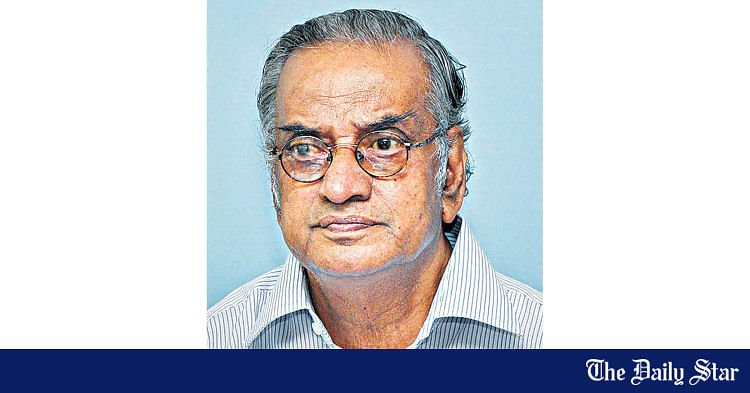Speakers at a programme yesterday recalled the contributions of former Kali O Kalom editor Abul Hasnat for his role in the advancement of the country’s arts and literature.
Kali O Kalom, a revered monthly literary magazine, organised the event at Bengal Shilpalaya in the capital’s Dhanmondi. The event marked the 80th birth anniversary of Abul Hasnat, who was born on July 17, 1945, in Old Dhaka.
The programme featured the “Abul Hasnat Memorial Lecture”, delivered by art historian Professor Abul Monsur.
Moderating the programme, Bengal Foundation Director General Luva Nahid Choudhury said in addition to his literary contributions, Abul Hasnat also played a crucial role in various progressive movements in the country.
Artist Biren Shome noted that Hasnat had deep knowledge about the arts.
In his lecture titled “The Journey of Our Contemporary Visual Arts: Colonisation-Nationalism-Globalisation Equation-Attempt”, Prof Monsur said numerous small and large-scale artworks and related activities helped fine arts flourish in this region.
He said the institutionalisation of fine arts in the country began with the establishment of the then Dhaka Art School (now the Faculty of Fine Arts at Dhaka University), where Shilpacharya Zainul Abedin played a key role.
Prof Monsur also discussed the history of fine arts from 1800 to 1955 during British India, post-partition India, and then East Pakistan.
He mentioned that Zainul Abedin, Shafiuddin Ahmed, Quamrul Hassan, and SM Sultan are the four most prominent artists of the country.
Referring to some of Rabindranath Tagore’s artworks, Prof Monsur said the Nobel laureate’s landscapes, especially those portraying twilight scenes, depict “a kind of solitude”.
He also noted that during the partition, Muslim artists were at a disadvantage, but National Poet Kazi Nazrul Islam was among those who supported and encouraged them to overcome challenges at the time.
Abul Hasnat passed away on November 1, 2020, at the age of 75. He was also a poet, essayist, art critic, literary figure, and cultural personality.


 For all latest news, follow The Daily Star’s Google News channel.
For all latest news, follow The Daily Star’s Google News channel.